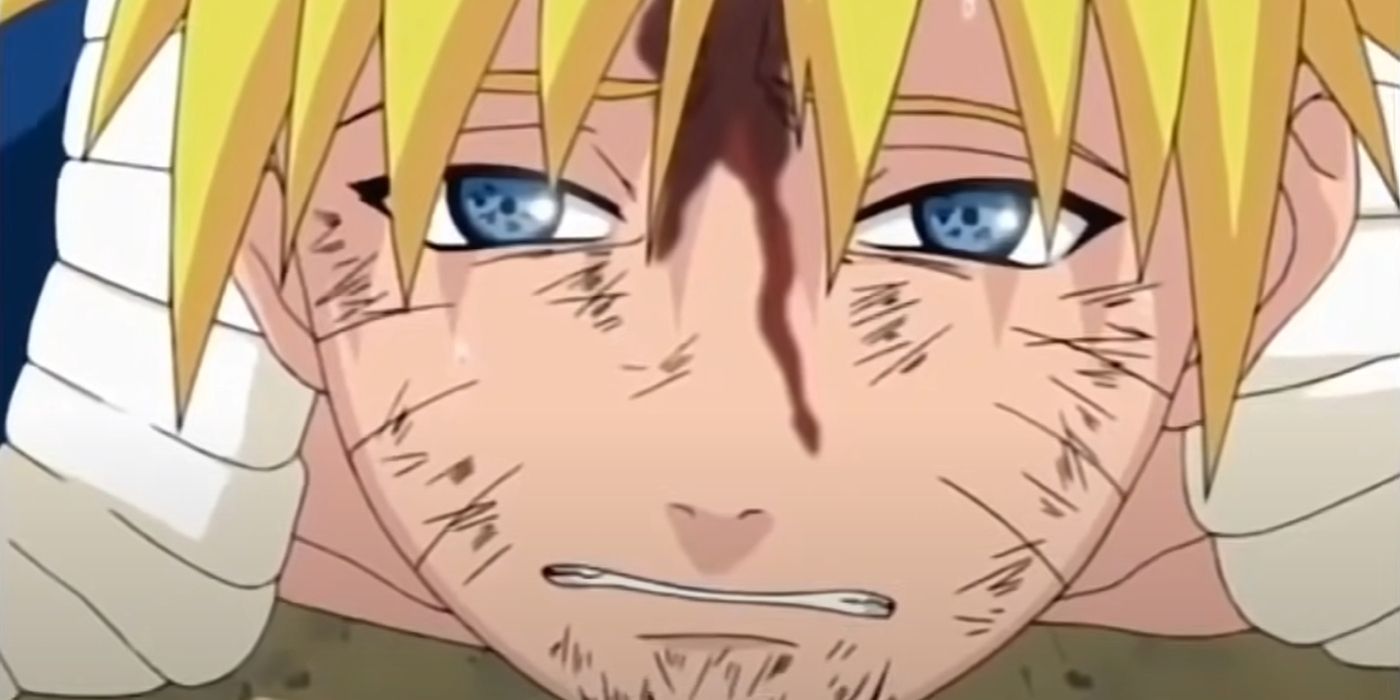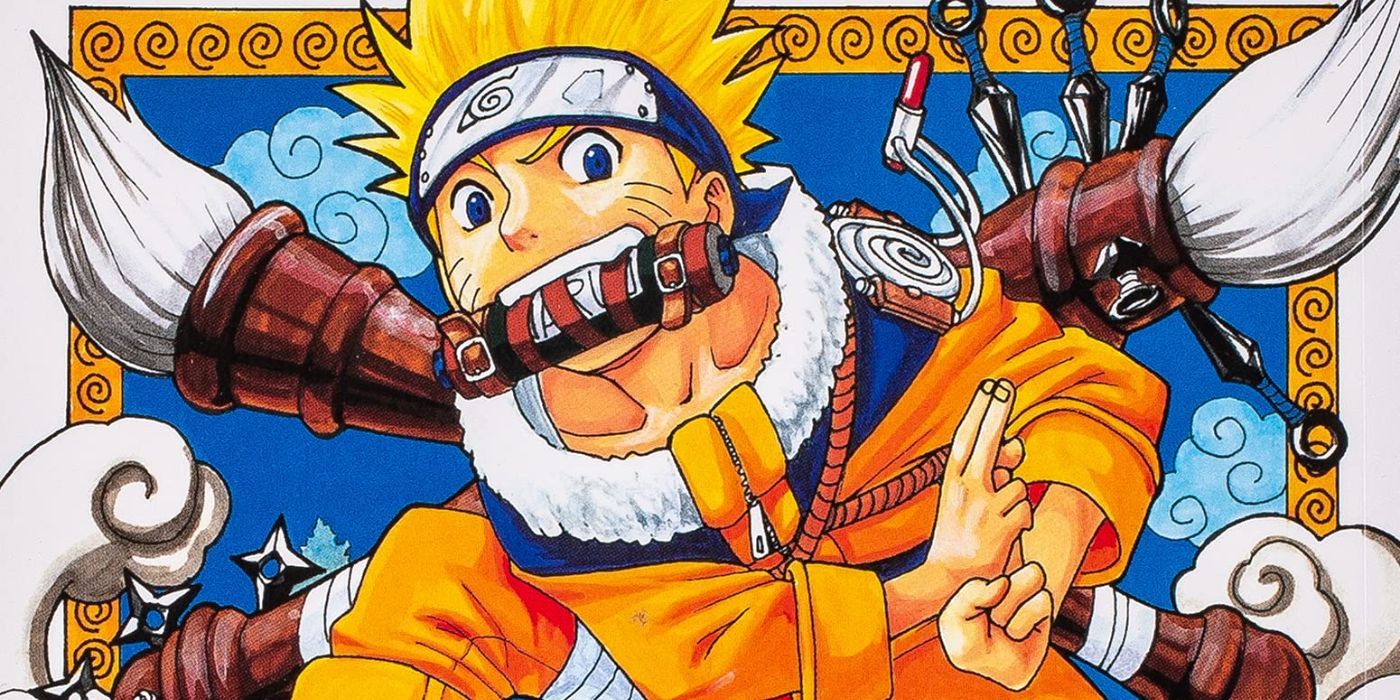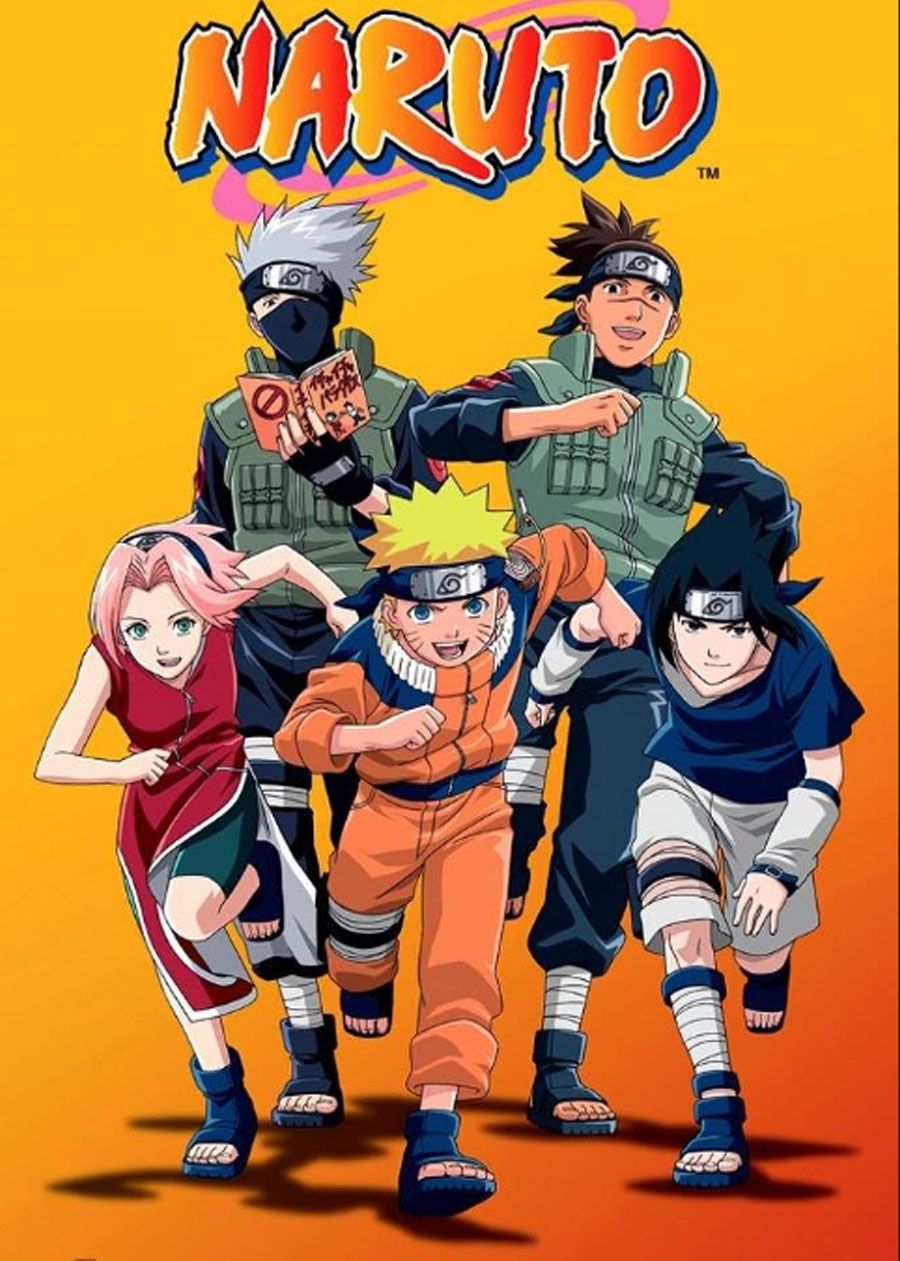The smash-hit Naruto anime defines its combat system with ninjutsu of all kinds, from Naruto Uzumaki's Shadow Clone jutsu to the Chidori and Substitution jutsu, but the most iconic and meme-worthy jutsu is what fans call the "talk no jutsu." Of course, speechcraft isn't a real ninja technique, but Naruto accomplishhed some incredible things with the spoken word and emotional appeals. According to Naruto lore, ninjas aren't supposed to express or act on emotions, but as a shonen anime, Naruto can't help but put positive feelings front and center.
It's not entirely a joke to say that Naruto Uzumaki's mouth is his best weapon when fighting powerful foes like Zabuza Momochi, Gaara of the Sand, Neji Hyuga, and even supervillains like the Six Paths of Pain. Naruto isn't just a scrappy underdog with a dream -- he's an idealist who has suffered greatly and wants to create a world where everyone can live in peace & empathize with one another, hence his talk no jutsu. The usage of talk jutsu has its detractors, and if handled badly, it can indeed be a problem. Overall, though, talk no jutsu is an essential part of Naruto Uzumaki's hero journey and has its place in other shonen anime, too.
What Exactly Is Naruto's Talk No Jutsu?

"Talk no jutsu" is when Naruto uses his words to make an emotional appeal to someone, usually a villain or antagonist, who doesn't see things his way. It's not the same as a shonen hero sharing inspiring words to a teammate or giving a rousing pep talk to their team before undertaking a difficult mission. Talk no jutsu is a soft weapon to use against someone hostile, to talk them out of their evil plans and/or redeem them. At least, that's how the "talk jutsu" plays out in the Naruto anime. When using the talk jutsu, Naruto fights with his words to end the battle with no losers.
In theory, any ninja in the Naruto world could try to use their words to convince an opponent to redeem themselves or stop their evil plans, but most ninjas are either unwilling or unable to make such an emotional appeal with speechcraft – and plenty wouldn't even think of it in the first place based on their personalities. The reason Naruto invented and regularly used the talk no jutsu is partly because of his idealistic, empathetic personality as an ENFP, but it's also because Naruto grew up with the Leaf Village being cruel to him. As a jinchuriki, Naruto faced ostraciziation and fear from his fellow villagers, all for the "crime" of being Kurama's living vessel. Naruto could have gone down a dark path as a villain in the making, but he resisted, and now he's ready to help other villains break away from their own dark paths and join him in the light.
There are several famous instances of Naruto using his talk no jutsu to redeem a villain and convince them to undo the damage they had done. Notably, Naruto would not use the talk jutsu right away as the alternative to combat -- he used talk no jutsu after exchanging blows with his enemy, perhaps to wear his enemy down so they're more willing to listen. That, or Naruto might spend the battle learning more about his enemy so he has more reference when using the talk jutsu. The first major talk no jutsu took place in the Land of Waves arc, when Zabuza acted indifferent to Haku's sacrifice to protect him. Naruto implored Zabuza to honor Haku's sacrifice and respect Haku's loyalty as a friend, and a tearful Zabuza was inspired to turn on his client in a fight to the death.
Another of Naruto's major talk no jutsu moments arrived when he fought his counterpart, Gaara of the Sand, to a standstill during Operation Konoha Crush – a battle that had interrupted the Chunin Exam story arc. Naruto understood Gaara's painful feelings of isolation as a "monster," and redeemed the seemingly hopeless Gaara. That paved the way for a strong friendship and firm political ties between the Leaf and Sand villages. Later on, Naruto used the talk no jutsu on the Six Paths of Pain, convincing Nagato and Konan to once again embrace Jiraiya's dream of world peace, a dream that Naruto had inherited. Nagato was inspired to give his very life to revive everyone who had died in the Leaf Village during Pain's assault.
Why Do Some Anime Fans Dislike Talk No Jutsu?
There are any number of reasons why someone might object to Naruto's use of emotional appeals to end a fight without killing someone. A major reason to dislike the talk no jutsu is the fact that simply talking the villain out of their evil plans seemingly invalidates the fight that just took place, since a talk jutsu is a battle on an entirely different level than ninjutsu vs ninjutsu. Fans might even call Naruto's physical battles with Gaara and Pain pointless if those villains just needed a heartfelt speech to be defeated as antagonists. Fans get invested in shonen battles because they want to see the hero use their strength to win, which is the payoff for any physical clash.
Audiences might also dislike the talk no jutsu because it's just too sentimental. When Naruto uses the talk jutsu, it's possible that one or both characters will shed tears, or a terrifying supervillain like Pain might basically say "I'll be a good guy now" and throw away their villainous ways just because of some flowery words. No one expects shonen heroes to have a heart of stone, but subjectively, an action hero like Naruto may come off as silly, whiny, or sappy if that hero uses heartfelt words to simply talk the villain out of their evil ways. Sometimes, fans don't want to see the hero put a wreath of flowers on the demon king's head, so to speak.
Why Talk No Jutsu Is Actually Good For Anime

The concept of a talk jutsu may have its detractors, but as a whole, talk no jutsu is a vital asset for the Naruto anime and other series like it. Even if action and victory are the point of an anime like Naruto, mere physical force can get repetitive and isn't resonant with readers. Fans want to see why the heroes and villains are fighting, and it's often personal for them. Such is often the case in the shonen "big three," where characters often lay bare their hearts to justify their actions. The Naruto anime simply took it one step further by creating the talk jutsu. Even if talk no jutsu feels like Naruto Uzumaki's signature weapon, the idea of adding sentimentality and an emotional battle in a fight is hardly unique to Naruto. Adding a robust emotional layer to any fight or story arc is essential and is resonant with any reader, who is just as human as characters like Naruto, Zabuza, Gaara, and Pain.
Anime like Naruto must take care when using a talk jutsu, since this trope can still backfire if it's overused or misused. The concept is sound -- the question is the execution. Fortunately, the Naruto anime generally handles this well, which has helped inspire the nickname "talk no jutsu" and the good-natured memes or jokes about it online. Still, the Naruto anime may have pushed it a bit, with Naruto using talk no jutsu not just on side characters like Zabuza and Neji Hyuga, but also supervillains like Pain and Kakashi's old friend/rival Obito Uchiha. Shonen fans expect the hero to use sheer force to overcome mega-threats like them, and there are fears that a talk jutsu will cheapen such a climactic, much-anticipated battle. Put simply, an anime must pick its battles when using the talk jutsu, literally and otherwise, or else talk no jutsu will become the cheap joke that some fans believe it already is.
What Other Anime Used Talk No Jutsu to Good Effect?
Heroes and villains make passionate, personal speeches all over the place in anime, but talk no jutsu is specifically defined as a character using their words to convince an antagonist to turn good. Even with that strict definition in place, shonen fans can find other instances of the talk jutsu at work outside of Naruto, proving that, in small doses, this anime trope is a valid one.
One of the most recent examples is found in My Hero Academia, where Ochaco Uraraka used her words alone to convince a terrified, defiant crowd of refugees to allow Izuku Midoriya to stay at the UA school during his time of need. The problem was that Deku was a major target for ultra-powerful villains, and having him at UA would put the refugees at serious risk if a villain arrived to finish off Deku. Class 1-A wasn't sure what to do, so the idealistic, kind-hearted Ochaco grabbed a megaphone and delivered one of My Hero Academia's best speeches. With her words, Ochaco convinced not just one person, but a whole crowd to see things her way, and Deku was admitted into UA. After all, pro heroes are expected to use more than their Quirks and punches to defend society -- they are also supposed to inspire people and give them hope.
Another major example comes from Bleach, more specifically its fondly-remembered Soul Society story arc. Protagonist Ichigo Kurosaki was fighting hard to save his friend Rukia Kuchiki from an unfair execution, and Rukia's foster brother Byakuya was determined to uphold that sentence for the sake of enforcing the law. Ichigo didn't have to risk his life for Rukia's sake, but he wanted to, and that drove him to fight Byakuya at the exection grounds in the Seireitei.
Ichigo used both his words and his physical power to fight back against Byakuya's heartless ways, and in the end, both factors convinced Byakuya to value his foster sister's life after all. Byakuya vowed to defend Rukia from her fate, and he even took a blow for her when Sosuke Aizen's squad of traitors arrived to antagonize Rukia even further. All that and more laid the groundwork for Byakuya and Rukia repairing their frayed relationship, redeeming the former along the way. When it comes down to it, talk no jutsu has a genuine place in the anime medium. It may be silly sometimes, but Naruto paved the way for heroes using nuance and emotion to talk down their greatest foes, which can be just as impactful as punching it out.


